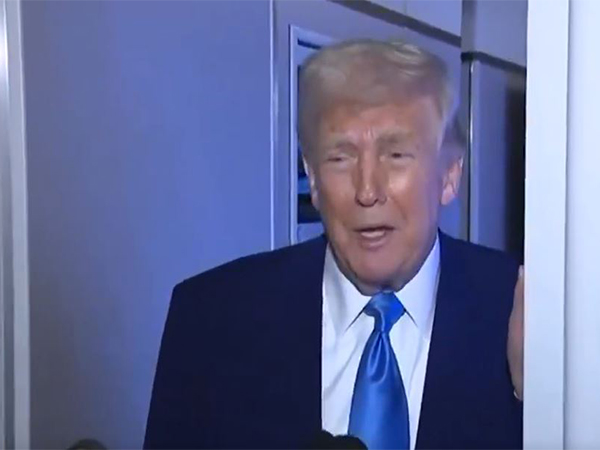Pakistan resorts to piecemeal measures as country lifts ban on 'luxury' items
Jul 30, 2022

Islamabad [Pakistan], July 30 : They say desperate times call for desperate measures. It suits best on Pakistan as the country lifts ban on imports of luxury items however it is only a precursor to an economic disaster as these piecemeal measures are not sustainable.
The South-Asian country is already under massive debt and the debilitating state of Pakistan's economy is forcing the country to undertake yet another unsystematic partial measure by lifting the ban on imports. The confusion is evident in the current decision by the cabinet.
This comes in the wake of approval by Pakistan's federal cabinet on Saturday to unban the imports of luxury items. It is worthy to note that the Pakistani government earlier scurried to ban the import of luxury items due to an alarmingly high trade deficit however now it has taken a U-turn on its earlier decision.
The rupee is depreciating in Pakistan and inflation is soaring at 22 pc. All of this has pushed the country's economy into an unprecedented crisis. Pakistan rupee is collapsing in comparison to US dollars and as per a report, it may slump further to PKR 275.
It is literally on tenterhooks, and efforts to stem the rot are not producing desired results, reported The Express Tribune.
Presently, the fiscal deficit looms at PKR 3.5 trillion and has increased by 5.2 per cent, pressurising the Central Bank to raise the interest rate by 125 basis points to 15 per cent. The country is under a debt of around USD 126 billion and the current account deficit has crossed USD 17 billion.
The need of the hour is an out-of-the-box solution. While the staff-level agreement reached with International Monetary Fund (IMF) for USD 1.7 billion seems to have hit snags, the economy is reeling under a severe balance of payment crisis.
To make matters worse the Pakistani rupee in the last four months of the coalition government has lost its value constantly by 0.50 paisa per day i.e. 13.7 per cent of its value.
Pakistan has to instantly address its balance of payment problem and at the same time pull the rupee out of the stampede zone. This can only be done if foreign remittances, as well as exports, soared and the country is in receipt of more than USD 40 billion on its own.
It is suicidal for Pakistan to rely on loans to nurture its economy. The debt that will keep the country bogged down for another 25 years in a quagmire is the biggest impediment on the path of self-reliance. The country must tap into the underlying potential in agrarian, mineral, tourism and entrepreneur horizons.
After the Economic Coordination Committee (ECC) reached a decision to lift the ban on the import of luxury items, the federal government approved the same, reported ARY News.
According to details, the ban on the import of luxury items such as cigarettes, chocolate and juices such as cosmetics, tissue papers, pet food, fish, footwear, fruits and dry fruits has been lifted.
Pakistan's Commerce Minister on May 20 notified a ban on the import of 38 non-essential luxury items under an "emergency economic plan".
Estimation is also building that goods like furniture, ice creams, jams and jellies, leather jackets, shampoo, sunglasses, ketchup, arms and ammunition, pasta, musical instruments, frozen meat, door and window frames, decoration articles, travel bags, suitcases, crockery and corn flakes can also be imported after lifting of the ban.
At the time of banning the import of luxury items, the country's Prime Minister Shehbaz Sharif had said that the decision was aimed at saving the country its precious foreign exchange.
He has also lambasted former Prime Minister Imran Khan's party PTI's "bad governance" which pushed the country into an economic mess.
In a tweet, Prime Minister Shehbaz Sharif said, "My decision to ban the import of luxury items will save the country precious foreign exchange. We will practice austerity & financially stronger people must lead in this effort so that the less privileged among us do not have to bear this burden inflicted on them by the PTI govt."
Meanwhile, Pakistan is currently battling with its fast-exhausting foreign currency reserves and widening fiscal and current account deficits, along with a rupee that has lost almost 20 per cent of its value in just 7 months since January 2022.
State Bank of Pakistan's reserves has fallen to as low as USD 9.32 billion, hardly enough to pay for 45 days of imports. The red line for SBP foreign currency reserves is USD 7.5 Billion to avoid "default".
Pakistan's political instability threatens to derail efforts to regain the confidence of key lenders. The country's currency endured its worst week in more than two decades, reflecting investors' worries that the country risks following Sri Lanka to become the next emerging economy to default on foreign repayments.



















